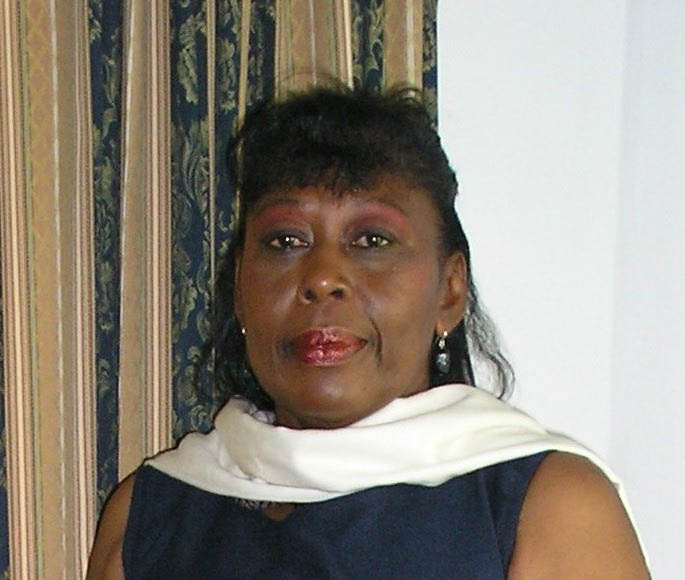Head of the University of Guyana’s recently established Institute of Research, Innovation and Entrepreneurship (UGIRIE) Professor Pat Francis says that the institution can play a novel role in creating a nexus between academia and the realization of initiatives that make ‘real life’ contributions to Guyana’s development.
According to Professor Francis the genesis of UGIRIE goes back more than a decade, arising out of the ‘mountain’ of papers and proposals, the academic efforts of students and staff, left lying on shelves and in cabinets, unexamined in terms of their likely practical relevance. These academic ideas, Professor Francis says, may well have meant that many of the country’s ‘best and brightest’ had been languishing in a condition of underachievement or might, otherwise, opted for migration.
It was the burdensome nature of the ‘mountains’ of uninvestigated academic effort, coupled with the various reports of local and International Consultants that led her to a commitment to address the issue. “I had a sabbatical year in 2007, and during that year, I visited several countries and many institutions …. I went to Costa Rica, the USA, and Jamaica. I examined their various experiences and institutions put together a proposal embodying what I thought would be the best way forward,” she told Stabroek Business. Additionally, she saw the initiative as holding potential for job-creation for university graduates. While the subsequent proposals that she made to both the University of Guyana and the Guyana School of Agriculture (GSA) “languished for a while” some of them were eventually adopted by the GSA. In the instance of UG, the further studies done by consultants failed to go beyond their recommendations regarding the establishment of the Institute.
In 2018 Professor Francis ‘floated’ the idea with she presented the idea with Dr. Paloma Mohammed, the then Head of the university’s Philanthropy, Alumni, Civic Engagement (PACE) Office, and now serving as Vice Chancellor of the University. Dr, Mohammed, she says, saw its value immediately. Thereafter, she was challenged to transform her idea into a practical proposal. The creation of the Institute was approved by the University Council in 2019.
UGIRE focus being on innovation and research. A virtual platform of Innovative projects is scheduled for formal launch in September. Its pursuits will be undertaken by both staff and students and will focus largely on final year academic efforts already undertaken at the University. This aspect of the project embraces a Technology Transfer Office “which, Professor Francis says, “the university is developing in collaboration with industry and with the market.”
The second plank on which UGIRE sits is that of entrepreneurship. It targets students from both the UG and the GSA and seeks to create direct links between students’ proposals and the transformation of those proposals into ‘living’ entrepreneurial pursuits. The entrepreneurship plank is currently in its fourth month and a proposal for sustained funding for UGIRE is currently being prepared for submission to government. Meanwhile, it is proceeding under the auspices of the Office of Vice Chancellor.
Professor Francis herself is currently immersed in the preparation of projects drawn from a broad swathe of academic efforts in various fields. Dedicated funding for the practical implementation of these projects is currently being sought. Additionally, plans are ‘in the pipeline’ for the creation of a facility in which the outcomes of the research and innovation will be placed on display, affording access to the public as well as to the private sector bodies interested in possibly probing their likely practical application. For as long as the covid-19 pandemic persists the Centre’s research and innovation efforts will be on display on a virtual platform.
The project’s technology transfer pursuits seek to embrace a wide range of disciplines ranging from agriculture science, at the one extreme, to medicine at the other. “Any kind of research or innovation that has market orientation or some component that allows it to be applicable to business – for example someone in medicine who may be working on a piece of equipment that may revolutionize surgery can have that placed on the technology transfer platform – because that may attract investor or other interest in the medical field people.
As part of its focus, the Institute, Professor Francis says, will be seeking to protect intellectual property through copyright and patents. Where there is evidence of industry interest the prospective buyers will be required to enter into copyright and/or patent-related agreements with the university. Thereafter, agreement will be reached (or otherwise) on possibly moving forward. Prospective ‘buyers,’
The Institute is currently the repository of several research and invention-related initiatives that have been undertaken by both students and staff over the years. In this regard, Professor Francis alluded to research undertaken into a poultry incubator that can be powered by solar energy or propane gas. She credited students from both the Engineering and Agriculture Science faculties of the university with the development of this project.
Allied to the initiative is the university’s current efforts to identify students who are interested in transforming entrepreneurial ideas into “bankable plans.” Meanwhile, UG is also engaged with local institutions concerned with the promotion of entrepreneurship including the Small Business Bureau and local commercial banks.
And according to Professor Francis much of the work of UGIRIE will be focused on mentorship. She is, she says, encouraged by the fact that a number of her colleagues university as well as leaders in the business community have expressed a preparedness to contribute to the mentoring of students involved with the work of the UGIRE.
The current focus of the Institute is on working with the first batch of thirty (30) students selected from an original group of one hundred and thirty (130) who had applied to be part of the exercise based on an advertisement published by the Institute, Their initial encounter will end in May and during that period they are expected to move in the direction of developing bankable ideas that can be further advanced.









